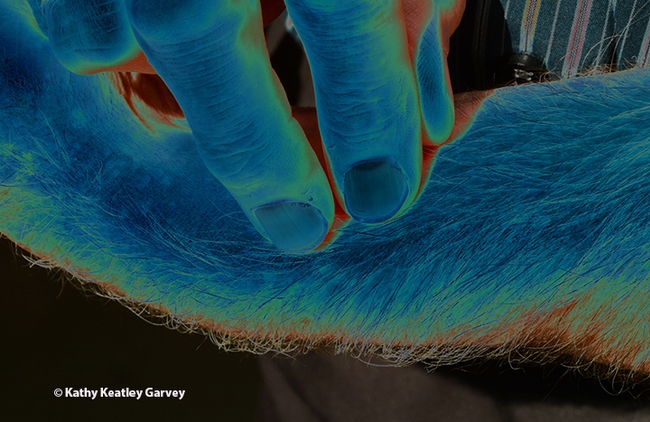- Author: Kathy Keatley Garvey


If you're a member of the Hammock lab, you're family.
So it was no surprise--no surprise at all--when Jean-Pierre Delplanque, Vice Provost and Dean of Graduate Studies announced that Hammock is a recipient of a 2024 Graduate Studies Distinguished Graduate and Postdoctoral Mentoring Award.
“Your dedication to mentoring is truly commendable, and this recognition is well-deserved,” he told Hammock in an email.
The annual award recognizes “the vital role mentoring plays in the academic and professional development of graduate students and postdoctoral scholars at UC Davis.” The professor will receive a certificate and a $1,000 education enrichment award.
Hammock, who holds a joint appointment with the Department of Entomology and Nematology and the UC Davis Comprehensive Center, “is an incredible mentor, legendary scientist, highly supportive colleague, and a great friend,” wrote nominator and former Hammock lab member Guodong Zhang, now an assistant professor in the UC Davis Department of Nutrition. “He richly deserves this prestigious award.”

Zhang described the Hammock lab as a “highly multidisciplinary, with members having scientific backgrounds in nutrition, pharmacology, analytical chemistry, cancer, pain, and environmental toxicology. From these extensive interactions within and outside of the research group, I have learned how to conduct scientific collaborations."
“The 3-year postdoc training in the Hammock lab stands out as one of the most rewarding periods in my research journey,” Zhang related. “In my moments of experimental setbacks, Bruce was a constant source of encouragement, guiding me on extracting valuable insights from negative data. Conversely, when experiments yielded positive results, he offered insightful advice and introduced me to other labs at UC Davis, thus broadening the scope of our research projects. Bruce was most excited about the ‘unexpected data' because of his belief that such anomalies often herald new scientific discoveries. And he always encouraged us to perform experiments to disprove his favorite hypotheses, fostering a positive and nurturing research environment.”
In his letter of nomination, Zhang shared comments by four other Hammock lab alumni: Kin Sing Stephen Lee, now an assistant professor, Department of Chemistry, Michigan State University; Yuxin Wang, lead computational biologist and manager of the Stephen Lindemann lab, Purdue University; Weicang Wang, assistant professor, Department of Food Science, Purdue University, and Susanne Mumby, retired assistant dean for postdoctoral affairs at the University of Texas Southwestern Medical Center. (Read the comments here)
'If Science Is Not Fun, It Shouldn't Be Done!'
We remember when Marlin Rice, a past president of the Entomological Society of America (ESA) chronicled Hammock in a 2020 Legends feature in the ESA's American Entomologist and asked what he looks for in researchers seeking to join his lab. "Curiosity," Hammock replied. "And then there's this: If science is not fun, then it shouldn't be done. And if they enjoy science, then they probably will be successful."
A member of the UC Davis faculty since 1980, Hammock is known for his expertise in chemistry, toxicology, biochemistry, entomology and human health research. His work in enzyme research alone spans more than 50 years. He co-discovered a human enzyme termed Soluble Epoxide Hydrolase (sEH), a key regulatory enzyme involved in the metabolism of fatty acids. The enzyme regulates a new class of natural chemical mediators, which in turn regulates inflammation, blood pressure and pain, and is in human clinical trials to replace opioid analgesics.
As director of the UC Davis Superfund Research Program (funded by the National Institutes of Health's National Institute of Environmental Health Sciences) for nearly four decades, Hammock supported scores of pre- and postdoctoral scholars in interdisciplinary research in five different colleges and graduate groups on campus. campus. He ran a pre- and postdoctoral training grant associated with this program and in addition for 15 years was principal investigator of a NIH training grant in the UC Davis Biotechnology Program.
Hammock is an internationally celebrated scientist. He is a fellow of the National Academy of Inventors, the National Academy of Sciences, the California Academy of Sciences, and ESA. At UC Davis, he received both the Academic Senate's Distinguished Teaching Award and the Faculty Research Lectureship. In 2020, UC Davis Chancellor Gary May awarded him the first-ever Lifetime Achievement Award.
His story, however, begins in Arkansas.
A native of Little Rock, Ark., Bruce received his bachelor's degree in entomology (with minors in zoology and chemistry) magna cum laude from Louisiana State University, Baton Rouge, in 1969. He received his doctorate in entomology-toxicology from UC Berkeley in 1973 with John Casida at UC Berkeley. Hammock served as a public health medical officer with the U.S. Army Academy of Health Science, San Antonio, and as a postdoctoral fellow at the Rockefeller Foundation, Department of Biology, Northwestern University, Evanston, Ill.
In the Army, he served as a medical officer at Fort Sam, Houston, and what he saw--severely burned people in terrible pain--made a lasting impression on him. Today he's deeply involved in his research at UC Davis and the company he founded, EicOsis, in 2011 to alleviate pain in humans and companion animals.
And today, UC Davis distinguished professor Bruce Hammock is a newly announced recipient of a 2024 Graduate Studies Distinguished Graduate and Postdoctoral Mentoring Award. Not only highly commendable, but so well-deserved!


- Author: Kathy Keatley Garvey

“I got two phone calls almost simultaneously on my two cell phones, so I thought this could not be a prank, but I am still in disbelief,” said Leal, a UC Davis distinguished professor in the Department of Molecular and Cellular Biology, and former professor and chair of the Department of Entomology (now Entomology and Nematology)
The caller: The National Academy of Sciences (NAS)
The message: You've been elected a member of the National Academy of Sciences, the highest honor a scientist can achieve.
"Members are elected to the National Academy of Sciences in recognition of their distinguished and continuing achievements in original research,” a spokesperson related. “Membership is a widely accepted mark of excellence in science and is considered one of the highest honors that a scientist can receive. Current NAS membership totals approximately 2,400 members and 500 international members, of which approximately 190 have received Nobel prizes."
“As they say, many deserving and few lucky ones," Leal commented. "Bruce Hammock told me many years ago that when he was elected to NAS, he looked around and saw many deserving colleagues. Now I understand that feeling very well. It is a tremendous and humbling honor. I hope an imposter syndrome does not kick in.”
Hammock, a UC Davis distinguished professor who holds a joint appointment with the Department of Entomology and Nematology, was elected a NAS member in 1999.
They are the only UC Davis entomologists who are NAS members.

Leal: World Leader in His Field
Leal, a native of Brazil and educated in Brazil, Japan and the United States, joined the UC Davis Department of Entomology in 2000. In 2013, he accepted a position with the Department of Molecular and Cellular Biology. "Walter is an internationally recognized entomologist and a world leader in his field for his groundbreaking and transformative research in insect olfaction and chemical ecology,” Hammock said. “He is truly a renaissance man. He chaired our entomology department from 2006 to 2008, and under his tenure, our department was ranked No. 1 in the country. I've long admired (1) his rigorous fundamental research programs supported by National Science Foundation, National Institutes of Health, and the U.S. Department of Food and Agriculture, and other agencies, (2) how he tackles and solves multiple challenging problems in insect olfaction and chemical ecology, (3) his grasp of how to organize and moderate highly successful worldwide research webinars (4) his generosity in helping other succeed and (4) his finely honed sense of humor."
Leal solves entomological problems spanning agriculture, human health, and welfare. He translates pheromone technology to agriculturists and serves as a principal investigator for the Pacific Southwest Regional Center of Excellence for Vector-Borne Diseases (affiliated with the Centers for Disease Control and Prevention). He holds more than 20 patents.
“Walter has been exceptionally conscientious, active, and generous in professional service at UC Davis,” Hammock pointed out. "In August of 2021, he achieved a ‘first' for international science communication when he organized and led the extraordinary virtual conference ‘Insect Olfaction and Taste in 24 Hours Around the Globe.' I especially applaud him for elucidating the mode of action of the insect repellent DEET, developed in 1946 and known as ‘the gold standard of repellents.' Its mode of action remained an enigma for six decades until Walter's discovery. In researching the neurons in mosquito antennae sensitive to DEET, he isolated the first DEET-sensitive odorant receptor, paving the way for the development of better repellents.”
May Berenbaum, professor and head, Department of Entomology, University of Illinois-Urbana-Champaign, National Medical of Science Laureate, NAS member, and editor of the Proceedings of the National Academy of Sciences, earlier wrote that “Dr. Leal is indisputably a world leader in the field of insect chemical ecology whose work over the course of his long and distinguished career has transformed basic knowledge of insect olfactory mechanisms and inspired innovative practical applications for sustainable management of insects of importance in agriculture and human health. He has contributed significantly to the current understanding of the structure and function of every component of olfaction, including receptors, binding proteins, and degrading enzymes, revising classic paradigms along the way. No textbook and no course on insect chemical communication could be considered complete without mentioning his landmark research achievements.”
'Just Like in a Honey Bee Colony'
Leal recently was named the 2024 recipient of the UC Davis Academic Senate's Distinguished Research Award, and will present a lecture on “Just Like in a Honey Bee Colony--It Takes a Team in the UC Davis Hive to Win an Award” at the Academic Senate's Faculty Distinguished Research Award Lecture Lunch on Tuesday, May 7 from noon to 1 p.m. in the UC Davis Conference Center.
Leal is the first UC Davis faculty member to receive the Academic Senate's trifecta of awards: outstanding teaching, public service, and research. Leal received the Academic Senate's 2020 Distinguished Teaching Award for Undergraduate Teaching, and the 2022 Distinguished Scholarly Public Service Award.
Among Leal's many honors: Fellow of the Entomological Society of America (2009), American Association for the Advancement of Science (2005), and the National Academy of Inventors (2019). He was elected a trustee of the Royal Entomological Society in February 2024.
Leal holds a Ph.D. in applied biochemistry from the University of Tsukuba, Japan, with subsequent postdoctoral training in entomology and chemical ecology at the National Institute of Sericultural and Entomological Science (NISES) and Cornell University, respectively. He was the first non-Japanese person to earn tenure at Japan's Ministry of Agriculture, Forestry, and Fisheries.

- Author: Kathy Keatley Garvey

As mentioned earlier, two members of the Academic Senate's winners' circle are UC Davis Distinguished Professor Walter Leal of the Department of Molecular and Cellular Biology (and former professor and chair of the UC Davis Department of Entomology), and Professor Louie Yang of the Department of Entomology and Nematology (ENT).
Leal won the Distinguished Faculty Research Award (see Feb. 22 Bug Squad blog) and Yang won a Distinguished Teaching Award, undergraduate category (see Feb. 26 Bug Squad blog). UC Davis Distinguished Professor Bruce Hammock of ENT nominated Leal, while Joanna Chiu, professor and chair of ENT, nominated Yang.
The awards reception is Monday, May 13; more information is pending. "In all, 15 faculty members have received awards from the two groups at UC Davis," UC Davis Dateline reports. (See list of the recipients.)
Leal is the first UC Davis faculty member to win all three of the Academic Senate's most coveted awards: in research, teaching, and public service. In 2020, the Academic Senate awarded him the Distinguished Teaching Award for Undergraduate Teaching, and in 2022 Distinguished Scholarly Public Service Award.

“Dr. Leal is an internationally recognized entomologist and a world leader in his field for his groundbreaking and transformative research in insect olfaction and chemical ecology,” Hammock wrote. "Walter is truly a renaissance man. "He chaired our entomology department from 2006 to 2008, and under his tenure, our department was ranked No. 1 in the country. I've long admired (1) his rigorous fundamental research programs supported by National Science Foundation, National Institutes of Health, and the U.S. Department of Food and Agriculture, and other agencies, (2) how he tackles and solves multiple challenging problems in insect olfaction and chemical ecology, (3) his grasp of how to organize and moderate highly successful worldwide research webinars (4) his generosity in helping other succeed and (4) his finely honed sense of humor."
Wrote Chiu: "I have watched him (Professor Yang) engage, inspire, and challenge his students, fostering creative and critical thinking like no one else I've ever seen. We deeply appreciate and admire his innovative and inclusive teaching, his exemplary work ethic, his welcoming demeanor, his dedication to his students, and his nationally recognized ecology expertise. Louie has received many well-deserved teaching and mentoring awards for his teaching contributions on and off campus.”
Of special note, too, is the James H. Meyer Distinguished Achievement Award, given annually to a member of the Academic Federation for "a distinguished record in research, teaching, and/or public service." This year the award went to Kirsten Gilardi, director of Karen C. Drayer Wildlife Health Center, and a health sciences clinical professor of Medicine and Epidemiology, School of Veterinary Medicine.
Wrote Dateline: "Health Sciences Clinical Professor Kirsten Gilardi has been part of the UC Davis Community since 1989. She is currently the director of the Karen C. Drayer Wildlife Health Center, a research, service and teaching center of excellence. In 2005, she founded the California Lost Fishing Gear Recovery Program, which hires experienced commercial scuba divers to remove gear and other marine debris from near-shore waters in a safe and environmentally sensitive manner. This program continues to help reduce the potential impact of losing fishing gear and marine debris on living marine resources and underwater habitat. Beyond her significant accomplishments in her field, her colleagues around the world highlight her passion for her position at UC Davis 'that expects her to protect wild animals and wild places.'"
Check out the Dateline website which includes a 2013 image of Gilardi with a silverback gorilla (image courtesy of Sandy Buckey.)
They all do UC Davis proud!

- Author: Kathy Keatley Garvey
Congratulations to UC Davis distinguished professor Walter Leal, the recipient of the Academic Senate's highly competitive 2024 Distinguished Faculty Research Award.
That makes three. Good things come in threes.
Leal is the first UC Davis faculty member to win all three of the Academic Senate's most coveted awards: in research, teaching, and public service. In 2020, the Academic Senate awarded him the Distinguished Teaching Award for Undergraduate Teaching, and in 2022 Distinguished Scholarly Public Service Award.
Leal, a member of the Department of Molecular and Cellular Biology since 2013 and former professor and chair of the Department of Entomology, commented: "Faculty at land-grant universities, like the University of California, have three hats labeled Teaching, Service, and Research. A significant challenge is to budget time to wear them equally and avoid the temptation to emphasize one part of the job over others. It is gratifying to be recognized by my peers as excelling in all areas. The Academic Senate Faculty Distinguished Research Award is particularly humbling because more than 3000 eligible faculty excel in all research areas on this campus. Why me? Because of my students, postdoctoral scholars, visiting scholars, collaborators, and colleagues. They deserve most of the credit for this honor. I accept it on their behalf. It is a team effort, like in a honey bee colony.”

"Walter is truly a renaissance man," wrote Hammock. "He chaired our entomology department from 2006 to 2008, and under his tenure, our department was ranked No. 1 in the country. I've long admired (1) his rigorous fundamental research programs supported by National Science Foundation, National Institutes of Health, and the U.S. Department of Food and Agriculture, and other agencies, (2) how he tackles and solves multiple challenging problems in insect olfaction and chemical ecology, (3) his grasp of how to organize and moderate highly successful worldwide research webinars (4) his generosity in helping other succeed and (4) his finely honed sense of humor."
“Walter has been exceptionally conscientious, active, and generous in professional service at UC Davis,” Hammock pointed out. “In August of 2021, he achieved a ‘first' for international science communication when he organized and led the extraordinary virtual conference ‘Insect Olfaction and Taste in 24 Hours Around the Globe.' I especially applaud him for elucidating the mode of action of the insect repellent DEET, developed in 1946 and known as ‘the gold standard of
repellents.' Its mode of action remained an enigma for six decades until Walter's discovery. Inresearching the neurons in mosquito antennae sensitive to DEET, he isolated the first DEET-sensitive odorant receptor, paving the way for the development of better repellents.”
Leal is a newly elected trustee of the Royal Entomological Society, the 13-member council that governs the 190-year-old international organization. He is the first UC Davis scientist to be elected a trustee. And he's chair of the Council of the International Congresses of Entomology, the body that ensures the continuity of the international congresses of entomology. He co-chaired the 2016 International Congress of Entomology, which drew 6,682 registrants from 102 countries to Orlando, Fla.
Among Leal's many honors: Fellow of the Entomological Society of America (2009), American Association for the Advancement of Science (2005), and the National Academy of Inventors (2019).
A native of Brazil, Leal joined the UC Davis entomology faculty in 2000, after serving as the head of the Laboratory of Chemical Prospecting, National Institute of Sericultural and Entomological Science (NISES), Ministry of Agriculture, Forestry, and Fisheries, Japan. In 2013, he accepted a position as professor of biochemistry, Department of Molecular and Cellular Biology. (See news story)
Frankly, we don't know how Leal does it all. He not only excels at research, teaching and public service, but he is widely known as "The UC Davis Ambassador," organizing campus-wide celebrations for faculty transitioning to emeriti.
As an aside, two UC Davis entomology faculty members scored two, but not three, of the Academic Senate's coveted awards. Bruce Hammock received the Distinguished Faculty Research Award in 2001, and the Distinguished Teaching Award (graduate student/professional category) in 2008. UC distinguished professor of entomology, James R. Carey, took home the Academic Senate's Distinguished Teaching Award (undergraduate student category) in 2014 and the Distinguished Scholarly Public Service Award in 2015.
Six other entomology faculty members have received Academic Senate awards:
- UC Davis distinguished professor Jay Rosenheim, Distinguished Teaching Award (undergraduate student category) in 2011
- UC Davis distinguished professor Lynn Kimsey (now emerita), Distinguished Scholarly Public Service Award in 2016
- UC Davis distinguished professor Frank Zalom, Distinguished Scholarly Public Service in 2017
- UC Davis professor and now department chair Joanna Chiu, Distinguished Teaching Award (graduate/professional category) in 2022
- UC Davis distinguished professor Diane Ullman, Distinguished Teaching Award (undergraduate category) in 2022
And the latest to join the winner's circle: Professor Louie Yang won the Distinguished Teaching Award (undergraduate category), announced today. More on this amazing teacher and mentor is pending.

- Author: Kathy Keatley Garvey
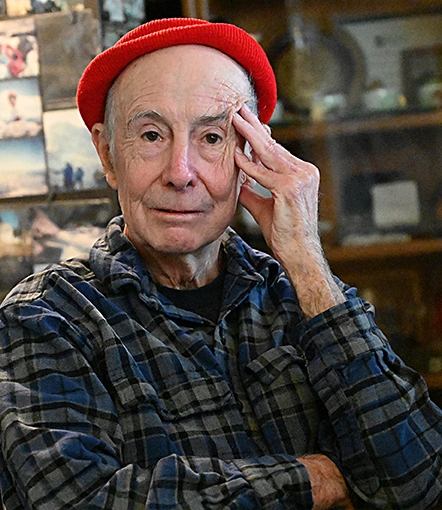
EicOsis Human Health LLC, the Davis-based pharmaceutical company developing a non-narcotic drug to relieve chronic pain and inflammation, today announced the next step in its ongoing human clinical trials: the initiation of Phase 1b to test the safety of its drug candidate, EC5026.
The ongoing double-blind, placebo-controlled Phase 1b study is designed to investigate the safety and pharmacokinetics of daily doses of EC5026 over seven days.
EC5026, an inhibitor of the soluble hydrolase enzyme (sEH), was discovered and patented at EicOsis based on previous patents and research papers from the laboratory of UC Davis distinguished professor Bruce Hammock during his half-century of research.
“EC5026 plays a crucial role in regulating the metabolism of signaling lipids and responding to inflammation and other stress responses caused by trauma or disease,” said Hammock, who holds a joint appointment with the Department of Entomology and Nematology and the UC Davis Comprehensive Cancer Center. “We found sEH to be a target for treating pain, inflammation, cancer and other diseases.”
By inhibiting sEH, EC5026 alleviates pain by preventing the breakdown of natural analgesic and anti-inflammatory fatty acids. Preclinical studies demonstrate no sedation or other adverse behavioral effects and no signs of addiction.
“Many regulatory molecules are controlled as much by degradation as biosynthesis,” Hammock explained. "The epoxy fatty acids rapidly degraded by the sEH control blood pressure, fibrosis,immunity, tissue growth, depression, pain, and inflammation, to name a few processes.”
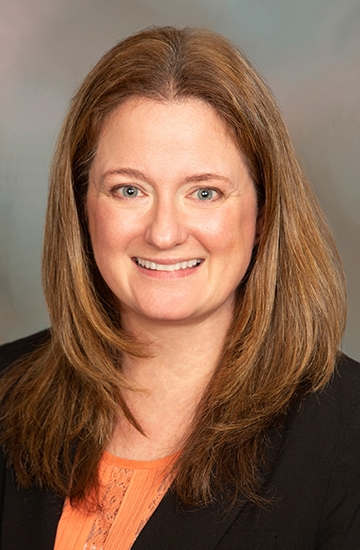
“The initial results from Cohort 1 appear to replicate the very favorable safety profile we observed in our previous two Phase 1a clinical studies where there were no adverse behavioral, cardiovascular, or neurological effects over five ascending single-dose levels,” said Dr. William Schmidt, EicOsis vice president of clinical development. “The maximum dose level was 5 to 10-fold higher than the anticipated analgesic dose in humans.”
“If Cohort 2 dosing also proceeds without clinically significant adverse effects and a favorable pharmacokinetic profile for once-a-day dosing,” Schmidt continued, “this provides encouragement for initiating our first analgesic efficacy study in the second quarter of 2024.”
EicOsis plans to initiate its first pain patient study in April 2024 “to evaluate safety and analgesic effects in patients with a spinal cord injury who have failed to achieve satisfactory pain relief with existing non-opioid chronic pain medications,” said Cindy McReynolds, EicOsis chief executive officer and former director of research.
“Initiation of the Phase 1b program represents a significant milestone for EicOsis Human Health and demonstrates the success and dedication of our team to make this happen,” said McReynolds, who holds a doctorate in pharmacology and toxicology from UC Davis. “Demonstrating safety in Phase 1b studies will allow us to evaluate efficacy in patients and bring forward safe and effective treatments for several serious diseases. For example, the sEH inhibitors are being considered for use for treatment of cancer in the UC Davis Comprehensive Cancer Center, and neurological disease through the UC Davis Health's designated Parkinson's Foundation Center of Excellence.”
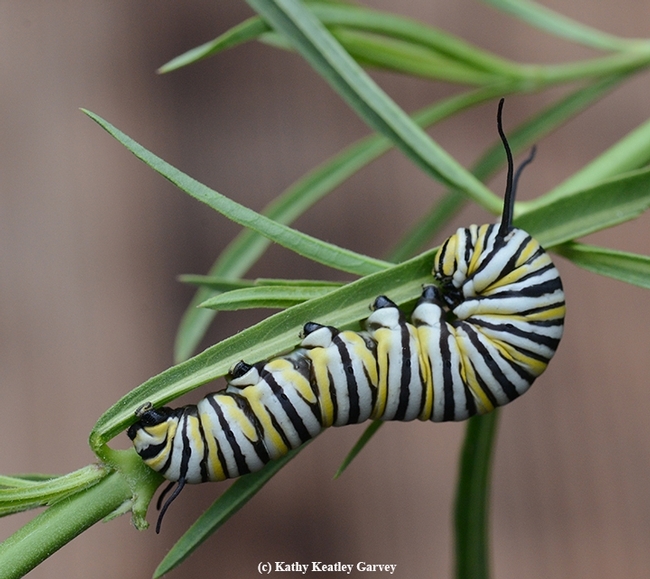
“As a potential anti-inflammatory fatty acid, EC5026 holds promise in addressing neuroinflammation, a key factor in the manifestation and even progression of Parkinson's,” said Zhang, who holds both an M.D. and a PhD. “Ensuring its safety profile in healthy individuals is fundamental for establishing a foundation for further clinical trials. this investigation provides valuable insights into design and overall safety parameters, paving the way for the next stages in advancing this innovative therapeutic approach for Parkinson's disease."
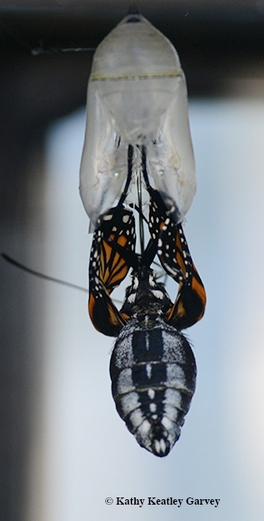
The FDA granted Fast Track status to EC5026 in April 2020 to support the unmet medical need for safe and effective non-opioid analgesics. EicOsis clinical scientist Irene Cortés Puch, who authored the successful application, commented: “Both our commitment and focus at EicOsis Human Health are guided by a genuine concern for the well-being of patients and recognizing the importance of identifying effective pain management alternatives. Therefore, the initiation of this Phase 1b clinical trial is an exciting step in advancing our mission to provide safer and effective treatments.”
Hammock traces his research on chronic pain to his earlier work on how a caterpillar becomes a butterfly; a key enzyme, epoxide hydrolase, degrades a caterpillar's juvenile hormone, resulting in metamorphosis.
A member of the UC Davis faculty since 1980, Hammock founded ;EicOsis in 2011 and served as its chief executive officer until February 2023 when he transitioned to scientific officer and chairman of the board of directors. Highly honored by his peers, he is a member of the National Academy of Inventors and the National Academy of Sciences and received the 2020 Lifetime Achievement Award in Innovation from UC Davis Chancellor Gary May. Hammock has authored or co-authored more than 1400 peer-reviewed publications and holds more than 95 patents in agriculture, environmental science and medicinal chemistry.
EicOsis (pronounced eye-co-sis), derives its name from eicosanoids, “the major backbone of chemical mediators in the arachidonate cascade,” McReynolds said. “It symbolizes the epoxide group in chemistry, which is key to the anti-inflammatory chemical mediators and where the biochemical target called soluble epoxide hydrolase works.”
Approximately 50 million Americans (20 percent of the population) suffer from chronic pain, according to the Centers for Disease Control and Prevention. The annual economic toll is $560 billion, encompassing direct medical expenses, lost productivity, and disability claims.
More information on the Phase 1b multiple-ascending dose clinical study is available at https://clinicaltrials.gov/study/NCT06089837.
